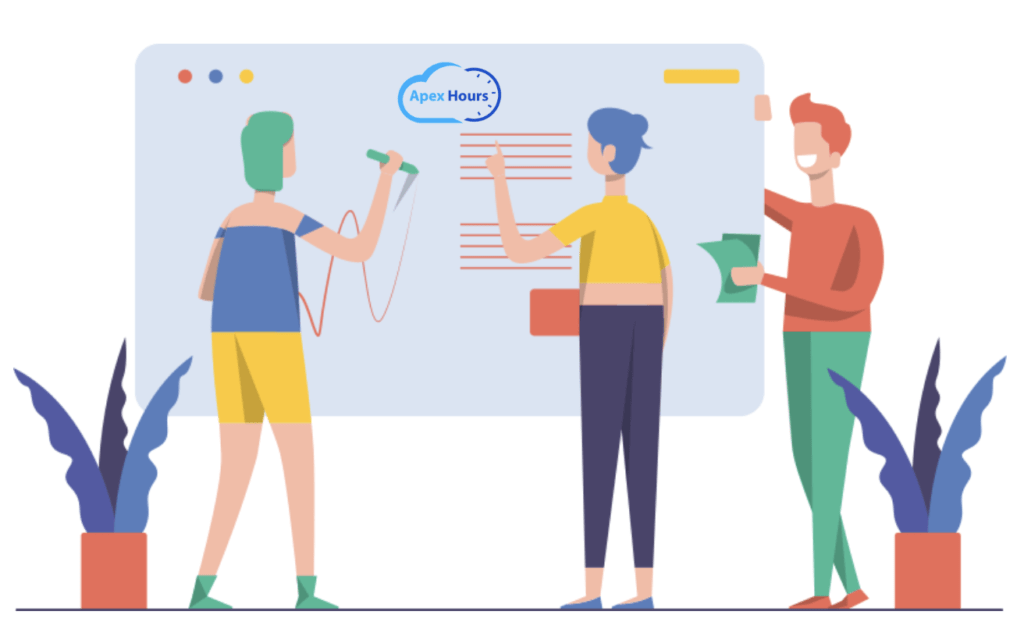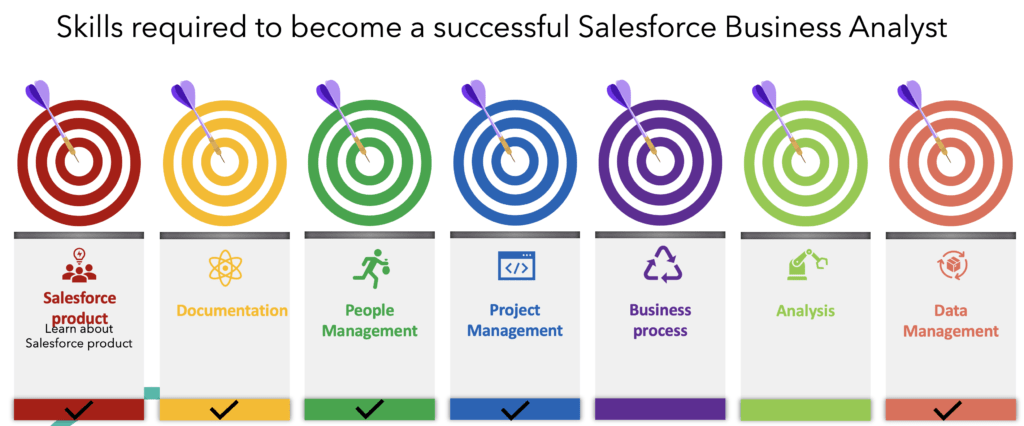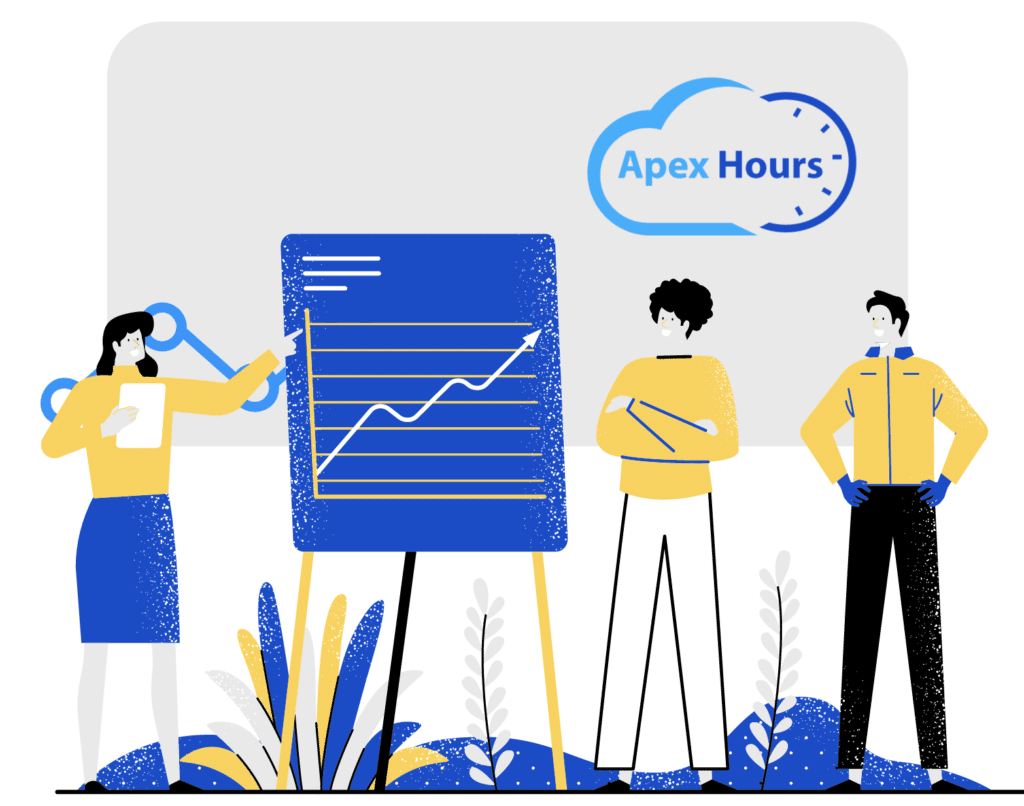When it comes to wearing multiple hats, you definitely need multiple skills to ace it. If you are looking forward to building a career as a Salesforce Business Analyst in the Salesforce industry or are already one but want to enhance your skills, ensure you develop or possess the below-mentioned skills.
The Salesforce industry offers diversified roles like Salesforce Business Analysts, Architects, Consultants, Project Managers, Product Consultants, and many more, apart from Developers and QAs. And this is what I literally love about it. But when we dig deeper into unique Salesforce careers, a Business Analyst is one of the most desired roles out there.
What Is a Salesforce Business Analyst?
Salesforce Business Analysts (BAs) are the bridge between the customer and the implementation partner. BAs need to know the project inside out. They play an essential role at every stage of SDLC (Software Development Life Cycle) be it any methodology.
- During the Planning & Analysis stage, BAs identify the requirements defining the project scope and the gaps.
- In Design stage, BAs help solves the requirements along with the Solution Architects & Developers.
- During the Development stage, BAs regularly check if the Developers are on the right path, help them with requirement clarification and demo the product to the customer.
- At Testing stage, BAs help QAs and customers to test the system. During the Go-Live stage, BAs support the customer in training and post-implementation support.

In some companies, BAs also demo the product during the presales stage. We can say BAs wear multiple hats during the project life cycle.
What is the role of BA in Salesforce?
Right from the requirement capture, running customer workshops, requirement elicitation, interacting with different customer user groups, creating the business requirement document (BRD), and capturing the as-is and to-be processes- this all is taken care of by a Salesforce Business Analyst(BA).
- Facilitates business requirement gathering sessions and information gathering from stakeholders, including Product Owner and SMEs.
- Works closely with business in co-facilitation of workshops and analyzing current state and future state business processes
- Creates and refines user stories based on prioritized features in Jira
- Leads backlog refinement sessions to define and review user stories and acceptance criteria with stakeholders.
- Collaborates closely with Experience Designer to ensure the user experience is taken into consideration in business requirements
- Seeks support from with SA and TA on solution design and technical considerations of the requirements.
- Solicits feedback from QA on acceptance criteria
- Captures notes and actions during workshops and meetings
- Supports the Build Team with any clarifications required to ensure development work is completed meeting business requirements and deliver business value.
- Participates in all key meetings, including backlog refinements, daily scrums, and PI Planning meetings

How to become a Salesforce Business Analyst
Here are the Skills required to become a successful Salesforce Business Analyst. Top 7 Skills in a Salesforce Business Analyst’s checklist:-

#1. Salesforce Product Expertise
You need to know the Salesforce Product since you are practically living and breathing Salesforce. It is important to know the basics of all Salesforce products. Trailhead is the best way to get started to learn any Salesforce product. And if you want to connect to fellow Business Analysts, you must join the Salesforce Chatter Groups.
#2. Documentation
Documentation takes up a major chunk of a BA’s time. Starting from the Requirement Gathering Notes, Schedule, Process Flows, User Stories, Architecture document, UAT Strategy document – any and every customer-facing document need to be written and/or approved by the BA of the project. If you are a BA, ensure you have your templates for all documents handy. The kind of documents to be provided to the customers will depend on your company. If they do not have any pre-defined templates, feel free to grab some from the internet and modify it as per your and your customer’s needs.
#3. People Management
Managing people includes managing the customer and your internal team members. It also includes communication skills and email writing skills. Any form of communication with the customer and team members must be precisely done with recommended methods. You must ensure you have built trust with your customers and team and have transparent communication.
#4. Project Management
Managing a project is a tricky task as you have to plan, execute, allocate, deliver, troubleshoot, and manage the changes given by the customer while being organized, detail-oriented, and people-friendly. All this while still maintaining a balance between your company and your customer! Enterprise companies have a separate Project Manager, however, for small and mid-sized companies, a BA and PM is usually the same role.
#5. Understanding Business Processes
Being a BA, you will come across multiple projects, of various industries, each having a different business process. It is essential that you understand the process, pain points, and goals of the customers. Ensure you provide solutions that are happily accepted by the customer and are sustainable. You don’t want to be in a position where you have to change the process after a couple of months. The processes must be thought through considering each role involved in the organization and must make life easy for each persona involved.

#6. Analysis
Analysis is the bread and butter for a Business Analyst (not just because it has Analysis in its name). You must be able to analyze the requirements, the gaps, the process, and then provide the solution to the customer. Analytical thinking and problem-solving are among the most important skills for a BA. Always have your thinking hat on about how you can innovate and make life better for your customers.
#7. Data Management
The most important thing in the 21st century is knowing your data and when to use it correctly. Being a BA, you will deal with lots of data and you must know how to handle it. You must know how to analyze the data patterns, avoid duplicates, and much more. Thankfully, we have dataloader.io by Salesforce to easily manage our data in Salesforce. And the game-changer, Einstein Analytics helps you play with your data the way you want it.
Salesforce Business Analyst Salary
Check Salesforce Salary Guide to learn more about BA Salary. Here is the Average salary (national): $104,000.
Salesforce Business Analyst Certification
Follow this path to get the skills you need to become a Business Analyst.
Salesforce Admin and Salesforce Business Analyst
| Salesforce Admin | Salesforce Business Analyst | |
| Role | Salesforce Admins set up users, security measures, and processes, and they maintain data on the Salesforce Platform. | Business analysts use data to plan and oversee Salesforce projects. BA act as interpreters between IT and business stakeholders. |
| Skills | Communication skills to work with people across the organization. Time management skills to help with case management and constant user requests. Leadership skills to lead the way in everything Salesforce. Problem solving skills to solve for the best solution for the organization. | Leadership skills to guide the business throughout a project. Communication skills to work with stakeholders at all levels of the business, gather requirements, and oversee projects from beginning to end. Project management skills to keep Salesforce projects on track and moving toward the end business goal. |
| Qualities | Empathetic. Listens to and understands customer needs, requests, and issues. Confident. Draws on knowledge about the Salesforce Platform to argue against requests that aren’t in the best interest of the business. Encouraging. Drives user adoption. | Data-driven. Tracks and evaluates data to provide insights back to the business. Action-oriented. Makes quick, actionable recommendations based on data findings. Solution-oriented. Takes project requirements and creates the best solution for the organization. |

FAQ’s
Nope. As long as they have a basic understanding of the Salesforce platform, keep up with platform changes, and have enough knowledge to understand platform capabilities and limitations, the “technical” Salesforce stuff is done by the Salesforce admin
This is up to each individual. If they have the skills, knowledge, and bandwidth to do so while overseeing implementation of a project solution, great! The more helping hands, the better.




